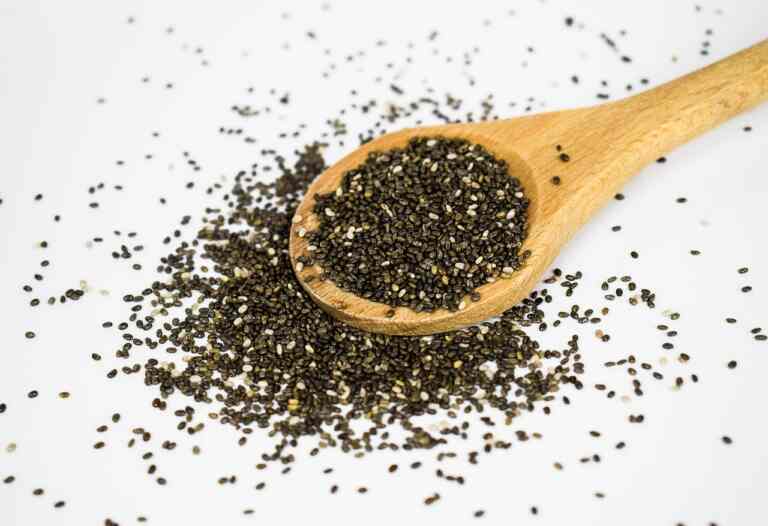Can We Eat Dairy Products Every Day?
Can we eat dairy products every day? Dairy products such as milk, cheese, and yogurt are a great source of calcium, vitamin D, and other essential nutrients. They are also versatile ingredients that can be used in a wide range of recipes, making them a popular choice in many households. Dairy products are a good source of essential nutrients such as calcium, protein, and vitamin D, which are important for building and maintaining strong bones and teeth, as well as supporting muscle growth and repair.
However, it’s important to choose low-fat or fat-free dairy products and consume them in moderation as some dairy products can be high in saturated fat and calories. Additionally, individuals with lactose intolerance or milk allergies should avoid dairy products or opt for suitable alternatives. Consult with a healthcare provider or registered dietitian to determine the best dietary plan for your individual needs.
Nutritional Benefits of Dairy Products
Dairy products provide several essential nutrients, including calcium, vitamin D, and potassium. Calcium is crucial for strong bones and teeth, and vitamin D helps the body absorb and use calcium. Potassium is important for maintaining healthy blood pressure levels and supporting heart health.
In addition to these nutrients, dairy products also contain protein, which is essential for building and repairing tissues in the body. They also contain other vitamins and minerals such as vitamin B12, phosphorus, and magnesium.
Recommended Daily Intake of Dairy Products
The amount of dairy products you should consume each day depends on your age, gender, and other factors. The United States Department of Agriculture (USDA) recommends the following daily servings of dairy:
- Children aged 2-3: 2 cups
- Children aged 4-8: 2 1/2 cups
- Adults and children aged 9 and older: 3 cups
It is important to note that these recommendations are based on a 2,000 calorie diet and may vary depending on your individual needs.
Potential Health Risks of Consuming Dairy Products Every Day
While dairy products can provide several health benefits, consuming them every day may not be suitable for everyone. Some people may be lactose intolerant or have a milk allergy, which can cause digestive discomfort and other symptoms.
In addition, some studies have suggested that consuming large amounts of dairy products may increase the risk of certain health conditions. Such as prostate cancer and ovarian cancer. However, these findings are not conclusive. And more research is needed to understand the relationship between dairy consumption and disease risk.
The role of dairy products in a healthy diet
Dairy products have long been recognized as an important part of a healthy and balanced diet. They are a good source of essential nutrients that are crucial for optimal health and well-being.
- Calcium: Dairy products are a rich source of calcium, which is important for building and maintaining strong bones and teeth. Consuming dairy products regularly can help to prevent osteoporosis and other bone-related disorders.
- Protein: Dairy products are also a good source of protein, which is essential for building and repairing tissues in the body. Protein is important for muscle growth and maintenance, and can also help to keep you feeling full and satisfied.
- Vitamins and minerals: In addition to calcium and protein, dairy products contain a variety of other vitamins and minerals that are essential for good health. For example, milk is a good source of vitamin D, which helps the body absorb and use calcium. Other important vitamins and minerals found in dairy products include vitamin B12, potassium, and magnesium.
- Weight management: Some research suggests that consuming dairy products as part of a healthy diet can help with weight management. This may be due to the protein content of dairy products. Which can help to increase feelings of fullness and reduce overall calorie intake.
- Digestive health: Probiotics found in some dairy products such as yogurt can help promote healthy digestion and support a healthy gut microbiome.
It’s important to note that not all dairy products are created equal. Some dairy products are high in saturated fat and calories. Which can be harmful to your health if consumed in excess. It’s recommended to choose low-fat or fat-free dairy products. And consume them in moderation as part of a well-rounded, balanced diet.

Alternatives to Dairy Products
Dairy products such as milk, cheese, and yogurt are a common staple in many people’s diets due to their taste and nutritional benefits. However, some individuals may be lactose intolerant or have a milk allergy. While others may choose to follow a vegan or dairy-free diet. In these cases, it’s important to find suitable alternatives to dairy products to ensure you still receive the essential nutrients your body needs. Here are some alternatives to consider:
- Plant-based milk: Plant-based milk such as soy, almond, or oat milk can be a good alternative to dairy milk. These milks are often fortified with essential vitamins and minerals, including calcium and vitamin D, to ensure they provide similar nutritional benefits to dairy milk. They can be used in cooking, baking, or as a beverage on their own.
- Non-dairy yogurt: Non-dairy yogurt made from soy, almond, or coconut milk is available in many grocery stores. These yogurts may not have the same taste and texture as dairy-based yogurt, but they can still provide beneficial probiotics and other nutrients.
- Nutritional yeast: Nutritional yeast is a vegan-friendly alternative to cheese. It has a nutty, cheesy flavor and can be used to top dishes like pasta, popcorn, and salads.
- Tofu: Tofu is a versatile plant-based protein that can be used in place of cheese in dishes like lasagna or on top of pizza.
- Nuts: Nuts such as cashews or almonds can be blended into a creamy sauce to replace cheese in recipes like macaroni and cheese or nachos.
- Avocado: Mashed avocado can be used as a spread or topping in place of cheese or sour cream.
- Hummus: Hummus can be used as a dip or spread in place of cheese or creamy dressings.
It’s important to note that while these alternatives can provide similar taste and nutritional benefits to dairy products. It’s still important to ensure you are getting a balanced and varied diet to meet your nutrient needs. Consulting with a healthcare provider or registered dietitian can help you determine the best dietary plan for your individual needs.
Can we eat dairy products before bed?
Dairy products such as milk, cheese, and yogurt are a good source of calcium, vitamin D, and other essential nutrients. Calcium is important for strong bones and teeth, and vitamin D helps the body absorb and use calcium. Dairy products also contain protein, which is essential for building and repairing tissues in the body.
In addition to these nutrients, some dairy products such as milk and yogurt contain tryptophan. An amino acid that can help promote relaxation and improve sleep quality.
Potential Digestive Discomfort
While dairy products can provide several nutritional benefits, consuming them before bed may not be suitable for everyone. Some people may be lactose intolerant or have a milk allergy, which can cause digestive discomfort and other symptoms.
In addition, consuming dairy products before bed may increase the risk of acid reflux or heartburn. It especially for individuals who are prone to these conditions.
Conclusion
In conclusion, consuming dairy products every day can provide several essential nutrients and health benefits. However, it is important to consider your individual health needs and dietary preferences. If you are unable to consume dairy products or choose not to include them in your diet. There are several alternatives available to ensure you still receive the essential nutrients your body needs. As always, it is important to consult with a healthcare professional or registered dietitian to determine the best dietary plan for you.
Related Posts
This article is reviewed by Russel, before publishing. If you have any doubt, you can contact us or consult with your nearby doctor. Remember, in medical matters, there is no same advice, cure, and medicine for all.







